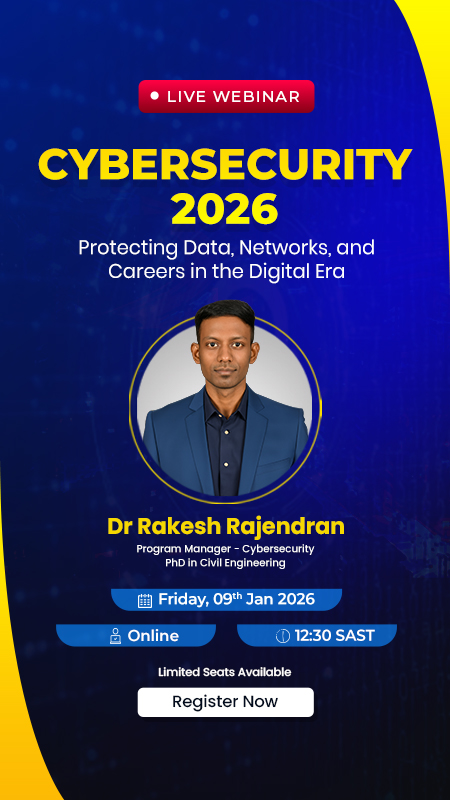How to Get Artificial Intelligence Job in South Africa: Skills, Certifications, and Opportunities
Artificial Intelligence (AI) is shaping the future of work, creating new career paths and transforming traditional industries. Many companies now rely on AI to enhance productivity, improve decision-making, and deliver better services. In South Africa, fields like finance, healthcare, and logistics are rapidly adopting AI, making it a beneficial area for job seekers.
If you’re wondering how to get an artificial intelligence job, the key lies in building relevant skills, earning certifications, and gaining experience. Employers in South Africa are looking for professionals who can design, develop, and implement AI solutions.
In this article, we will guide you through the essential steps to start your AI career. We will also explore the growing demand for AI, the required skills, and how to build a portfolio that stands out to employers.
Understand the AI Job Market in South Africa
The artificial intelligence job market in South Africa is expanding as industries adopt AI for automation and data-driven decision-making. As we explore how to get an artificial intelligence job, we learn that building relevant skills is the foremost step in the process. It is important as companies seek professionals who can implement AI technologies to enhance efficiency and customer experiences.
Growing Demand
The rapid growth of AI technologies is reshaping industries across South Africa. As businesses recognise the benefits, AI is being integrated into various sectors to improve processes and enhance customer experiences. Some of the main industries adopting AI in South Africa are as follows:
- Finance: Banks use AI for fraud detection, risk management, and personalised financial services.
- Retail: AI helps in inventory management, customer service, and targeted marketing.
- Logistics: Companies leverage AI to optimise supply chains and reduce operational costs.
Key Roles in AI
AI offers a diverse range of career opportunities, with professionals needed to drive innovation and apply AI solutions across multiple sectors. These roles require both technical expertise and creative problem-solving. Here are some of the well-known positions:
- AI Engineer: Designs and develops AI systems and applications.
- Machine Learning Specialist: Builds machine learning models to solve specific problems.
- Data Scientist: Analyses data and builds predictive models.
- AI Consultant: Advises companies on how to implement AI solutions effectively.
Read on to Learn How to Become an Artificial Intelligence Engineer.
Essential Skills for AI Jobs
To succeed in AI, you need a mix of technical and soft skills. Understanding how to get artificial intelligence job opportunities requires mastering AI solutions and effectively communicating their value to different teams. Building these skills prepares you for various roles and helps you stand out in the competitive job market.
Technical Skills
Individuals who seek to work in the Artificial Intelligence field must develop some essential technical expertise. Some of these skills are given below:
- Programming Languages: Knowledge of Python, R, and Java is essential for AI development.
- Machine Learning Frameworks: Familiarity with tools like TensorFlow and PyTorch is important.
- Data Analysis and Visualisation: Skills in tools like Tableau and Excel are valuable for data interpretation.
Soft Skills
In addition to technical expertise, soft skills play a vital role in the successful implementation of AI projects. To work in a collaborative and harmonious environment, it is important to have the following soft skills:
- Problem-Solving: The ability to tackle complex challenges is crucial in AI projects.
- Communication Skills: Explaining AI concepts to non-technical stakeholders is a key requirement.
- Analytical Thinking: Using logic and reasoning to solve problems, assess solutions, and make informed decisions in dynamic environments.
Discover What to Learn in Artificial Intelligence for Success Here!
Education and Certification
A strong educational background and relevant certifications are key when considering how to get artificial intelligence job opportunities. Degrees provide foundational knowledge, while certifications show your dedication to learning new technologies. Employers seek candidates with up-to-date skills and qualifications that align with industry needs. Here are some educational paths you can consider to prepare you for a successful career:
1. Pursue a Degree
Earning a Bachelor’s or Master’s in Computer Science, Data Science, or Artificial Intelligence provides a strong foundation in AI. These degrees cover essential subjects like algorithms, data structures, and machine learning, equipping you with the knowledge needed to build and implement AI solutions.
2. Enrol in an Online Course
Online courses are a flexible way to build AI skills. Digital Regenesys is an online platform offering an Artificial Intelligence Course designed to help you gain relevant expertise in AI. Additionally, Digital Regenesys provides courses with AI modules, such as:
- Digital Marketing with Gen AI
- Cloud Computing and DevOps Course with AI/ML
- UI/UX and Graphic Design Course with Gen AI
These courses combine theoretical learning with practical projects to enhance your skills.
3. Get Certifications
Earning certifications is a critical step in preparing yourself for roles in AI, as they showcase your specialised knowledge and skills. If you are wondering how to get an artificial intelligence job, certifications in areas like machine learning, deep learning, and data science can significantly enhance your qualifications. Popular options include:
- Google AI and Machine Learning Certification: Provides in-depth knowledge of AI concepts and practical applications.
- AWS Certified Machine Learning Speciality: Focuses on implementing machine learning solutions on the AWS platform, equipping you with skills for cloud-based AI development.
4. Attend Workshops and Bootcamps
Workshops and boot camps offer quick, hands-on learning experiences. They focus on practical skills, allowing you to apply AI concepts to real-world problems in a short time. Attending these events helps you gain industry-relevant experience and build connections with professionals in the AI field.
Explore Is AI Hard to Learn Here!
Build a Strong Portfolio to Showcase Your Expertise
A strong portfolio is more than just a collection of projects. It reflects your practical skills, creativity, and dedication to the AI field. Employers and recruiters often prioritise candidates who can have practical experience through real applications. It shows that you can apply theoretical knowledge to solve practical problems, making you an ideal candidate.
Additionally, one essential step in understanding how to get an artificial intelligence job is to develop a well-organised portfolio. It showcases your ability to manage projects, work with various technologies, and deliver results. This reassures employers of your readiness for complex AI tasks, even if others have similar educational backgrounds.
Portfolio Essentials
Your portfolio should showcase key projects that highlight your AI expertise and problem-solving skills. Make sure to demonstrate a range of AI applications, such as machine learning models, data analysis projects, and real-world AI solutions you’ve developed or contributed to. Consider the following essentials while making your portfolio:
- GitHub Repository: Provide links to your code repositories to show your coding skills and project development process.
- Documentation: Include detailed descriptions of each project, outlining the objectives, tools used, challenges faced, and outcomes achieved.
- Achievements and Certifications: Highlight relevant AI certifications and any recognition or awards you have received for your work.
Gain Practical Experience
Practical experience is crucial for building a career in AI. Employers often prefer candidates who have work experience. By gaining practical experience, you can strengthen your skills, build confidence, and improve your chances of securing a job in the AI field. The following are some ways you can consider to gain experience:
1. Internships
Internships offer a practical route for those wondering how to get artificial intelligence job experience. They allow you to work on real projects, collaborate with teams, and see how AI is applied across industries. Internships often lead to full-time roles and help expand your professional network.
2. Freelance Projects
Freelancing helps you work on diverse AI projects, often with flexibility and independence. By taking on freelance projects, you can expand your portfolio, learn new tools, and build a reputation as a problem-solver.
3. Entry-Level Roles
Beginning with entry-level roles is a great way to gain practical experience in AI. Some roles to consider include:
- Data Analyst: Start by working with data to gain foundational experience.
- Junior Data Scientist: Learn how to build and implement basic machine learning models.
- AI Research Assistant: Support research teams by gathering data and assisting in experiments.
- Machine Learning Intern: Gain hands-on experience by assisting in the development and training of machine learning models.
- Junior AI Developer: Work under senior developers to help design and implement AI-driven solutions.
Read and Understand What is Artificial Intelligence Here!
Stay Updated with Industry Trends
AI is a constantly evolving field, and staying updated is essential for long-term success. Keeping up with the latest tools, frameworks, and technologies ensures that your skills remain relevant. Regular learning also helps you identify new opportunities and adapt to changes in the AI industry.
1. Continuous Learning
Continuous learning is vital for anyone exploring how to get artificial intelligence job opportunities. Enrol in online courses, attend webinars or follow industry blogs to stay current. Platforms like Digital Regenesys offer specialised AI courses that keep you updated on advancements, ensuring you remain competitive and grow in your career.
2. Technology Updates
AI technologies and frameworks evolve quickly. Regularly updating your knowledge of popular tools like TensorFlow, PyTorch, or cloud-based AI services ensures that you are familiar with the latest features and best practices. Following tech news, subscribing to AI newsletters, and joining AI communities can help you stay informed about these changes.
Applying for AI Jobs in South Africa
Applying for AI jobs requires careful preparation. Before applying for a job role, it’s important to research the company and its AI initiatives. Understanding their expectations and the job requirements can help you understand how to get an artificial intelligence job. Here are a few important points you should consider while applying for a job to make a good impression:
- Tailor Your CV: Highlight your relevant skills, certifications, and experience that align with the job requirements.
- Prepare for Interviews: Demonstrate your technical expertise by solving AI-related problems during technical rounds.
- Top Companies to Target: Top companies for AI careers in South Africa include tech giants like Microsoft and Google, innovative startups, and financial institutions such as banks and consulting firms investing in AI technologies.
In conclusion, building a career in Artificial Intelligence requires a combination of the right skills, education, and practical experience. By understanding the AI job market, acquiring essential skills, and gaining hands-on experience, you can successfully navigate your path to an AI job. If you’re serious about knowing how to get an artificial intelligence job, start by investing in education, building a strong portfolio, and staying updated with industry trends. With dedication and the right approach, you can secure a rewarding role in this field.
To develop the required skills, you can check out the Digital Regenesys website to learn more about our courses and how these courses can help you get a job in artificial intelligence.

How to Get an Artificial Intelligence Job? – FAQs
What qualifications do I need to get a job in AI?
A Bachelor’s or Master’s degree in Computer Science, Data Science, or a related field is recommended. Certifications in AI and machine learning can also enhance your chances.
How can I gain experience in AI as a beginner?
Start with internships, entry-level roles, or freelance projects. Participating in competitions like Kaggle can also help build experience.
Which industries offer the most AI jobs in South Africa?
Industries like finance, retail, healthcare, and logistics are leading the adoption of AI in South Africa.
What are some of the artificial intelligence future job roles?
Future jobs in artificial intelligence include roles like AI engineer, data scientist, machine learning specialist, robotics developer, and AI ethicist.
How important is a portfolio for AI job applications?
A strong portfolio is essential as it showcases your practical skills and problem-solving abilities to potential employers.














